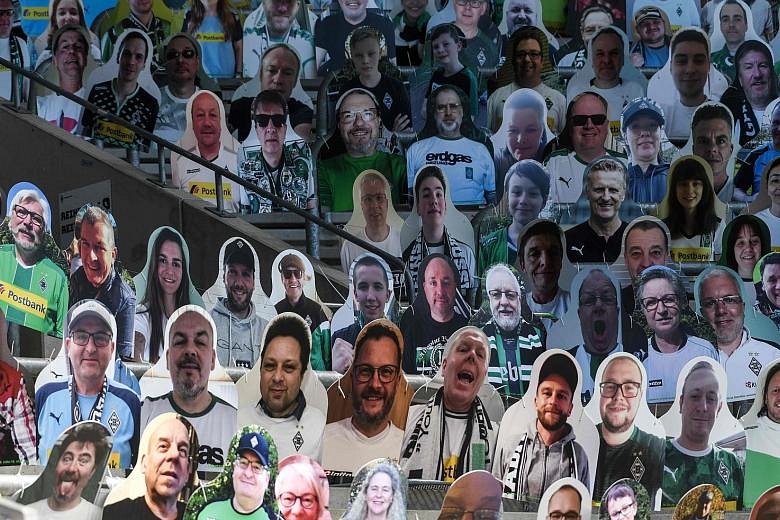As mainstream sports begin to return during the coronavirus pandemic, social distancing will be vital. Filling a stadium to capacity would be reckless and probably lethal.
At the same time, that raises doubts about whether sports can fully sustain our devotion, or maintain their television audiences, if played for many weeks or months in front of empty seats.
Sure, social media, gambling and fantasy leagues stir fan interest.
Mixed martial arts' Ultimate Fighting Championship, Nascar, women's golf in South Korea and the German Bundesliga are carrying on without fans. Baseball leagues in South Korea and Taiwan have also found early-season television audiences despite empty stadiums.
But without live spectators for an extended period, traditional games risk being reduced to mathematics with trading cards, especially once the novelty of sports' return wears off.
For those watching on television, spectators are necessary surrogates. They provide jersey-wearing pageantry, face-painted tribalism and adrenaline for the players.
Their responses of jubilation and anguish verify our passionate responses. Their voices become our soundtrack, collectively rising in anticipation, thunderously exhaling in joy or disapproval.
And they reinforce the belief that we can directly influence the outcome of a game with our loyalty and howling presence.
Fallow stadiums would not signal a return to normalcy as states reopen. They would confirm that we remain in a time of dire abnormality, undercutting the appeal of sports as escape and distraction.
And they would raise an uncomfortable question: If it is unsafe for people to gather in the stands or in places like restaurants and parks, why is it acceptable to ask athletes to compete for our entertainment?
Especially since many sports rely heavily on black and Latino athletes, while Covid-19 disproportionately affects the lives of those same people in the United States.
The optics would be "a little gladiator-like", said Rick Gentile, a former long-time executive at CBS Sports who directs a sports poll at Seton Hall University's business school.
Of course, sports have long learnt to adapt and experiment, from baseball games recreated in radio studios in the 1950s to NBC's announcer-less National Football League game in 1980.
When other major sports resume, networks could try to alleviate the silence with piped-in crowd noise, as Fox is considering, along with digitised fans.
But this would further enhance the sense of artificiality, as do the sex dolls and the placards of faux, masked fans in South Korean football stadiums and the robot drummers in Taiwan's baseball league.
Cooped-up Americans in general are eager to watch live sports, according to a recent poll conducted by Seton Hall.
But one in five who consider themselves devoted sports fans said they would be less interested in watching broadcasts of games without spectators present.
"I'd hate to think that I'm going to do a broadcast and 20 per cent of the people are already turned off," said Gentile. "I'm not sure that the viewing audience would be sustainable without a crowd at the event."
Scores will be kept. Winners and losers will be declared. But without fans, the games might soon feel sterile, with Los Angeles FC manager Bob Bradley saying a closed-door football match has "no soul".
This can be seen in other sports. Watch again Tiger Woods' impossible chip shot on the 16th hole at the 2005 Masters.
The eruptive joy and validation of fans elicit fist pumps from the now 15-time Major champion and elevate his greatness beyond clinical expertise.
TV viewers, too, will miss that energy in empty stadiums.
But Gentile and other TV experts said they hoped Fox and other networks would avoid the off-putting trick of artificial crowd noise.
"That would be almost offensive," he said. Which is the same response that apologetic South Korean football officials had about the sex dolls.
NYTIMES

